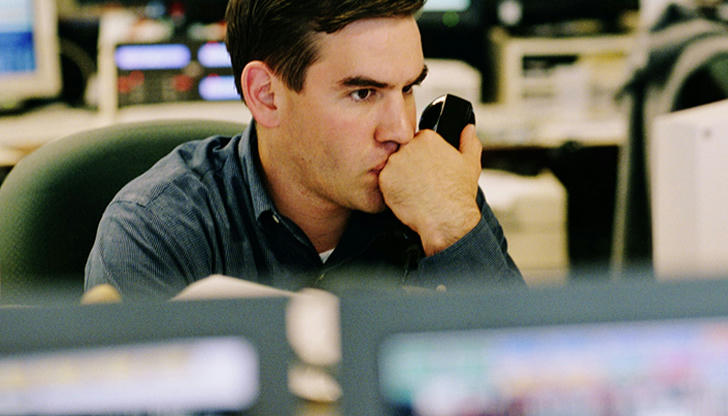10 Common Mistakes We See Investors Make

In the realm of investments, whether it's the stock market, bond market, real estate, or any other investment channel, investors face various challenges and risks. Many investors, due to lack of experience, blind following, or overconfidence, often make some common mistakes. Below are ten mistakes investors often make, hoping to provide warnings and insights to the vast majority of investors.
1.Lack of clear investment goals and plans
Many investors fail to establish clear investment goals and plans before they start investing. They often simply follow others' recommendations blindly without setting clear objectives and strategies. Investing without clear goals and plans makes it difficult to achieve desired returns and may even lead to significant risks.
2.Ignoring risks & chasing high returns excessively
Investors are often attracted by high returns but overlook the potential risks involved. They may invest a large amount of capital in pursuit of high returns without conducting sufficient research and assessment of the investment project. Such actions often lead to investment failures or even serious financial losses.

3.Excessive trading & neglecting long-term value
Some investors like to trade stocks or other investment products frequently, attempting to profit from short-term fluctuations. However, frequent trading not only increases trading costs but may also miss out on the long-term value of the holding. Genuine investment should focus on long-term value rather than short-term market fluctuations.
4.Herd mentality & lack of independent thinking
Many investors are easily influenced by market sentiment and others' opinions, blindly following the crowd. They often lack independent thinking and judgment, merely chasing so-called "hot" investment projects. Such actions often result in erroneous investment decisions and unnecessary losses.

5.Overconfidence & ignoring market changes
Some investors are overly confident in their investment abilities and judgment, ignoring market changes and risks. They may believe that their investment decisions are always correct and are unwilling to accept market feedback and adjustments. However, the market is complex and ever-changing, and overconfidence often leads to missed opportunities or greater risks for investors.
6.Lack of diversification & excessive concentration of risks
When investing, investors often concentrate most of their funds on a specific project or industry. While this may bring higher returns, it also increases risks. Once the industry or project encounters problems, investors may face significant losses. Therefore, reasonable diversification is an essential means of risk reduction.
7.Neglecting tax planning & increasing tax burden
When making investment decisions, investors often overlook the importance of tax planning. They may not fully understand tax regulations, resulting in unnecessary tax burdens during the investment process. Proper tax planning can help investors reduce tax costs and improve investment returns.
8.Ignoring information gathering and analysis
When making investment decisions, investors need to fully understand and analyze relevant information. However, some investors often overlook the importance of information gathering and analysis, making decisions based solely on their feelings or intuition. Such actions often lead to decision-making errors and losses.

9.Lack of patience and perseverance
Investing is a long-term process that requires investors to have sufficient patience and perseverance. However, some investors lack patience and are eager for quick success. Once the market experiences fluctuations or investment progresses less than expected, they tend to become anxious and panic. Such a mentality often affects investors' decisions and behaviors, leading to investment failures.
10.Ignoring learning and growth
Investing is a continuous learning and growth process. However, some investors often overlook the importance of learning and growth, relying solely on past experiences or knowledge for investment. With the continuous changes in market conditions and investment tools, investors need to continuously update their knowledge and skills to adapt to new investment needs and challenges.

How investors can avoid these mistakes
•Clearly define investment goals and plans
Before investing, it's essential to define your investment goals and plans, including expected returns, risk tolerance, and investment horizon. This helps investors stay calm during the investment process and not be swayed by market fluctuations.
•Assess risks and pursue reasonable returns
Investors should assess the relationship between investment returns and risks rationally, avoiding blindly pursuing high returns while ignoring potential risks. Before investing, conduct thorough research and evaluation of the investment project to ensure manageable risks.
•Stick to long-term investment
Avoid frequent trading and focus on long-term value. Short-term market fluctuations are normal, and investors should maintain patience, trust their investment strategy, and hold quality assets for the long term.
•Independent thinking
Investors should maintain independent thinking and not be influenced by market sentiment and others' opinions. When making investment decisions, consider your circumstances and the market environment to make rational judgments.
•Diversify investments
Investors should diversify their funds into different projects, industries, and regions to reduce the risk of single investments. At the same time, pay attention to the balance of asset allocation to ensure the robustness of the investment portfolio.
•Improve investment skills
Investment is a process of continuous learning and growth. Investors should pay attention to market dynamics, learn new investment concepts and skills, and continuously improve their investment abilities.
•Set stop-loss points
Setting reasonable stop-loss points is crucial during the investment process. When investments incur losses, it's essential to stop losses at the stop-loss points promptly to avoid further losses.
•Rationally deal with market fluctuations
Market fluctuations are normal, and investors should stay calm and rational, not influenced by short-term market fluctuations. When the market faces adverse situations, calmly analyze the reasons and take appropriate measures.
Conclusion
Investors need to avoid these common mistakes in the investment process. By establishing clear investment goals and plans, evaluating risks reasonably, focusing on long-term value, maintaining independent thinking, diversifying investment risks, conducting proper tax planning, gathering and analyzing information adequately, maintaining patience and perseverance, and continuously learning and growing, investors can better cope with market challenges and risks, achieving steady investment returns.
